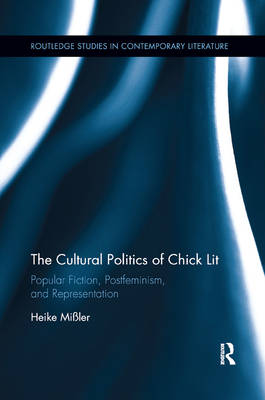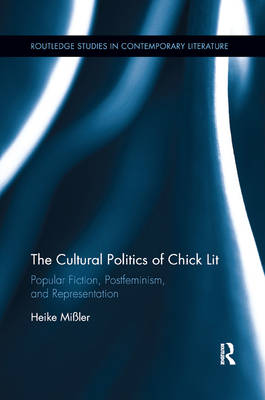
- Retrait gratuit dans votre magasin Club
- 7.000.000 titres dans notre catalogue
- Payer en toute sécurité
- Toujours un magasin près de chez vous
- Retrait gratuit dans votre magasin Club
- 7.000.0000 titres dans notre catalogue
- Payer en toute sécurité
- Toujours un magasin près de chez vous
Description
Chick lit is the marketing label attributed to a surge of books published in the wake of Helen Fielding's Bridget Jones's Diary (1996) and Candace Bushnell's Sex and the City (1997). Branded by their pink or pastel-coloured book covers, chick-lit novels have been a highly successful and ubiquitous product of women's popular culture since the late 1990s.
This study traces the evolution of chick lit not only as a genre of popular fiction, but as a cultural phenomenon. It complicates the genealogy of the texts by situating them firmly in the context of age-old debates about female literary creation, and by highlighting the dynamics of the popular-fiction market. Offering a convincing dissection of the formula which lies at the heart of chick lit, as well as in-depth analyses of a number of chick-lit titles ranging from classic to more recent and edgier texts, this book yields new insights into a relatively young field of academic study. Its close readings provide astute assessments of chick lit's notoriously skewed representational politics, especially with regard to sexuality and ethnicity, which feed into current discussions about postfeminism. Moreover, the study makes a unique contribution to the scholarly debate of chick lit by including an analysis of the (online) fan communities the genre has fostered.
The Cultural Politics of Chick Lit weaves a sound methodological network, drawing on reader-response criticism; feminist, gender, and queer theory; affect studies; and whiteness studies. This book is an accessible and engaging study for anyone interested in postfeminism and popular culture.
Spécifications
Parties prenantes
- Auteur(s) :
- Editeur:
Contenu
- Nombre de pages :
- 222
- Langue:
- Anglais
- Collection :
Caractéristiques
- EAN:
- 9780367877460
- Date de parution :
- 10-12-19
- Format:
- Livre broché
- Format numérique:
- Trade paperback (VS)
- Dimensions :
- 152 mm x 229 mm
- Poids :
- 317 g

Les avis
Nous publions uniquement les avis qui respectent les conditions requises. Consultez nos conditions pour les avis.






